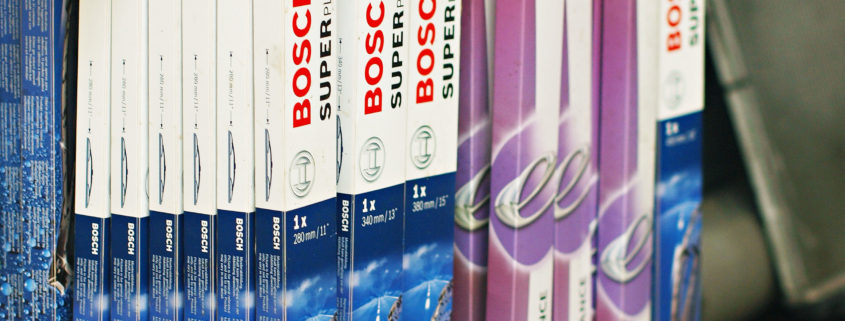Parts
Cheap Car Parts – Good Value or an accident waiting to happen?
By Melanie Wooding Jones – Redbourn Auto Solutions, caring for you and your car
It may surprise you to know that not only is the automotive industry unregulated, but the same also applies to the supply of car parts. Currently, there are no automotive parts standards or certification. Anyone could set up as a specialist and sell parts, inadequate or not, for your vehicle. You couldn’t do this in aerospace or locomotive industries, so why is the automotive industry so different? How do you know what you are buying and that your garage/mechanic is supplying reputable parts?
Surely all parts are the same? It would be a common misconception that when you are comparing costs of servicing or repair it is on a like for like basis. But not only do garages use different terminology, but their parts vary considerably in quality.
Many won’t actually tell you what they are fitting, but it would be naive to assume they are fitting a quality part.
Here we try to demystify the terminology to enable informed decisions to take place on what you would like fitted to your car.
Genuine or Original Equipment (OE) Parts
Contrary to popular belief, car manufacturers don’t make parts! They manufacture cars; they mostly assemble car parts which are bought from car part manufacturers.
Genuine or OE parts are exactly the same as those fitted to the vehicle on the production line. They will be an exact fit and come with the manufacturers guarantee.
Genuine parts will maintain the manufacturer’s warranty, but they are generally the most expensive.
Replacement or OEM – Original Equipment Manufacturers
Car part manufacturers (eg, Bosch, Hella, ZF, etc) supply parts directly to car manufacturers (eg, Ford, VW, etc). These companies are referred to as Original Equipment Manufacturers (OEM).
These parts will be identical to OE parts, but they come in a box with the name of the part manufacturer on them (Bosch, etc) rather than the car manufacturer (eg, Ford, etc). They negotiate to be able to sell their parts independently as part of their contract. They are likely to be cheaper than OE parts, and can be used without invalidating the cars warranty. These are the exact same part, but are much better value.
Aftermarket/Pattern Parts
These parts are copied or re-engineered based on the original. Aftermarket companies purchase the rights to manufacture the part using the template (pattern) from the original manufacturer.
It would be wrong to assume all aftermarket parts are of an inferior quality. Some quality manufacturers analyse why OEM parts fail and improve the design. However, some are poorly made and a garage may have to adapt them to fit your car. The parts may be made from substandard materials and prone to wearing out quickly. At it’s extreme, they could be dangerous.
Look out for an ISO (International Organisation for Standardisation) certification.
Costs can vary, although they are likely to be cheaper than OE or OEM parts. Assuming you have a good quality part, these can be ideal for older cars.
Remanufactured parts
Engines and gearbox’s are made from multiple components, when one component fails it is possible to strip down the unit and replace the broken part with a new one. Rebuilding it and testing ensures that they are nearly as good as new.
This is a very cost-effective way of maintaining an older car and some remanufactured parts come with a guarantee.
Reconditioned parts
Like remanufactured parts, this applies to units with multiple components. Once stripped down, failed parts are replaced with used parts (bolts and fasteners may be new).
This is far cheaper than replacing a unit with a new part, but it is impossible to know how long they will last and like remanufactured parts, may expose weaknesses in other areas.
Salvaged/Recycled parts
There are no guarantees here! These parts have usually been salvaged from scrapped cars. Most scrap yards keep their cars outside and open to the elements, so you don’t know how well they have been stored or how delicately they’ve been removed.
There are very few circumstances that this would be recommended, although for some classic cars, this may be the only answer.
Internet
The internet is littered with auction sites encouraging you to ‘save money, buy cheap’. If you really know what you are looking for, and prepared to take a risk, then perhaps this is the right method for you. However, in reality very few of us have this knowledge or the understanding of the car market, rendering us an unsuspecting prime target.
Our advice is to steer clear, or be prepared to pay twice for the rectification work!
Warranty
Main dealers like to give the impression that you must use a genuine part or you will invalidate your warranty. This is simply not the case.
Likewise, you cannot invalidate your warranty by having maintenance or repairs carried out somewhere other than the dealership.
It’s a myth that keep many within the main dealer network.
Conclusion
Not all parts are the same and they vary considerably in quality affecting their performance and longevity. (For example, cheap brakes are made from a different compound, glue and coating, which can substantially increase stopping distances).
Some parts suppliers prioritise rigorous quality and testing, other suppliers may be more concerned with producing volume as cheaply as possible.
Main dealers want you to stay in their network and independents compete fiercely on price, all using different parts of differing qualities.
Your car is unique to you – old family favourite, a new car, one of a fleet or your only means for getting around. All of these impact on your buying choices.
Choose wisely. Would you consider an aftermarket part if it is safety critical or positioned in and around a crucial engine bay?
Independents vary on quality so it is worth asking which parts are recommended, ensuring you are satisfied they are the right choice for you. Don’t assume all garages will fit the same part and bare this in mind with price comparisons.
Always ask yourself whether you are prepared to compromise quality and safety for cheap. Or take your car to someone you trust will fit quality first time, every time.

